Back to The Discus.com Learning Center
Back to The Discus.com Learning Center
Introduction
Discus fish are very interesting fish to keep for aquarium keepers and they have gained popularity over time because of their unique beauty as they are very colorful. Despite their appearance among other benefits of keeping discus fish, there are other shortcomings and the most notable among them is the price. Discus fish are relatively expensive even to buy compared to other aquarium fish available in the market. There are several reasons why discus fish are expensive and they are discussed below.
Reasons why Discus fish are expensive
i) They require warmer temperature compared to other tropical fish
For those discus fish keepers in the colder climate, this is a big cost. This is why imported discus from Asia is much cheaper when they leave the breeding facilities. It cost less to grow them out there. For this reason, retail for discus fish is expensive because the seller has to make enough to account for loses and stay in business.
ii) Food and water quality
Regardless whether you go with homemade food or off the shelf food, discus fish food is relatively expensive. Making your own beef heart or seafood mix isn’t cheap either. They have very strict water requirements as well and most of the breeders have to work very hard to meet these. These strict requirements make them very expensive.
iii) Time to grow
There is a lot of time involved in growing discus from fry to adult. The higher quality adults are also a lot more because it has probably been through a culling process. So basically discus fish expense comes down to how much time breeders put into the fish. Time is money and to raise good high quality discus you will need lots of time.
iv) Demand
Another reason discus fish are so expensive is a simple supply and demand situation. There are not many breeders in the U.S. for example. For this reason, they are not producing anywhere near the demand for particular strains. Another option would be imported discus fish, but they come with lots of expensive and risk that have to be covered. The trans-shipper has to house them, treat any problems, absorb any losses due to carrier negligence and give some kind of guarantee to the buyer. These factors make the cost of imported discus even higher.
Aside from the lower supply, people really like the discus fish and so the demand is huge as well. For this reason, shops can charge more, and people will pay. There is also a huge demand for these fish as they are gaining in popularity for their stunning appearance.
v) Breeding brand
Discus fish have name brands, so it depends on who bred the fish. Some people prefer a certain brand of breeder of the discus fish and will pay any price as long as it is from the brand. The breeder will take advantage of this and set a high price making the discus expensive.
vi) Labor
Discus fish are so expensive because breeding and keeping them requires some of the most labor intensive fish keep practices known. A lot of effort is put into keeping and breeding the fish in order to produce big and better specimens with the best colors. For most of the common fish, you can just throw them in a pond in a tropical area, feed them and come back in 6 months with a net and scoop out hundreds of small fish. So they are super cheap to breed. Breeding discus, however, requires more care, very good water conditions, less fish in the tank and the expensive bigger ones are probably a year or so old. They had to be kept in very good conditions and fed good food to get them to grow. All these labor intensive tasks make discus fish more expensive.
Conclusion
Discus fish are sometimes loosely referred to as the king of the aquarium. I guess this is because, on a light note, you almost have to be royalty to afford some of them. All in all, despite all the expenses, discus fish keeping is worth it when all is said and done. Hopefully this article will help you understand why discus fish are expensive.

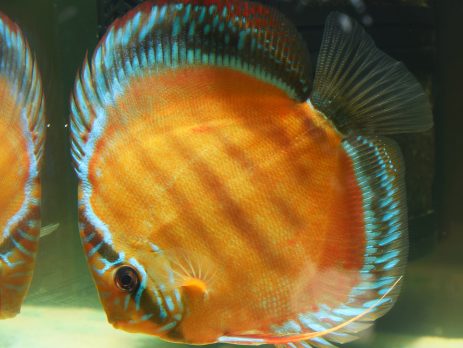



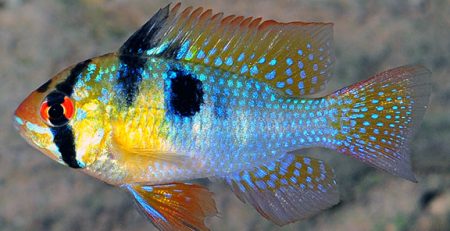


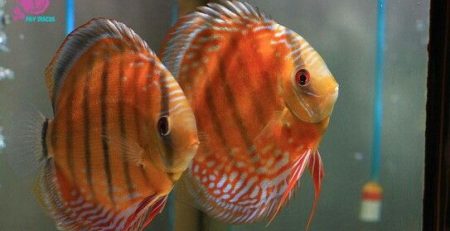
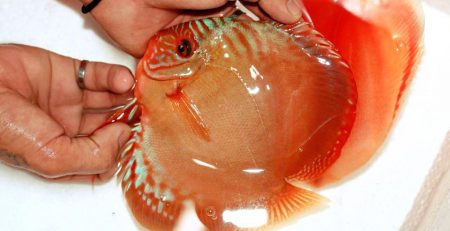

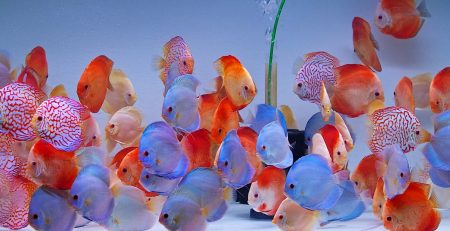
Leave a Reply
You must be logged in to post a comment.